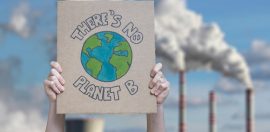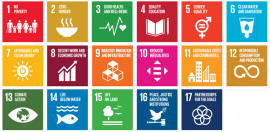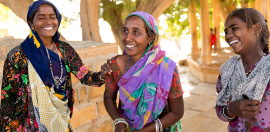New plan says SDGs must inform COVID-19 stimulus spending

8 September 2020 at 8:17 am
Advocates say Australia needs to do better tackling the SDGs
Governments around the world should align the US$9 trillion (A$12 trillion) in COVID-19 global stimulus spending with the sustainable development goals (SDGs), a coalition of Australian NGOs say.
Fairtrade Australia and New Zealand, the Global Compact Network Australia, and the Sustainable Development Solutions Network Australia, New Zealand & Pacific have released a five-point plan for the regional and global COVID-19 recovery.
The plan is aimed at reducing inequalities and building a more resilient economic future.
The CEO of Fairtrade Australia and New Zealand, Molly Harriss Olson, said COVID-19 has threatened to erode 30 years of progress and push an estimated 580 million people into poverty.
She said society could build back better post-COVID by using the trillions of dollars in global stimulus to form a more sustainable world.
“By aligning the US$9 trillion in COVID-19 global stimulus spending to the United Nations sustainable development goals, we can drive a global economic recovery that supports people and our planet,” Harriss Olson said.
As well as calling for ambitious action on the SDGs, the plan also calls for coherent policies to move Australia to net zero emissions by 2050, the championing of multilateral and regional partnerships that drive economic recovery and environmental resilience, and more support for society’s most vulnerable.
Harriss Olson told Pro Bono News it was also vital to invest in fair, transparent and more inclusive trade.
She said modern slavery was a major issue currently, with supply chains profits from indentured servitude reaching around $150 billion dollars every year.
“Fair, transparent, accountable trade is essential for a healthy and sustainable planet. And at the moment, the combination of modern slavery and COVID is really creating more crisis in the trade world than ever before,” she said.
“But if we start to look at the structures that Fair Trade has developed over the years, how can we apply those more broadly in the world of trade to make sure that consumers are aware of their respective companies’ supply chains to make sure they’re transparent?”
Harriss Olson said COVID was teaching us how connected the whole world was and that we cannot escape a global pandemic “nor the impact of poverty on the whole world just by pretending it’s not there”.
The report notes that while Australia ranks third among OECD countries in its response to COVID-19, it only ranks 37th globally on progress in meeting the SDGs.
Harriss Olson said the charity and not-for-profit sector had a role to play in holding the Australian government accountable for a lack of progress.
“The sector can really help us to create coherent policy, and be good partners in all [manner] of ways with governments to make sure that we’re building social and environmental resilience into the way we make investments,” she said.
“These community groups can also help all of these organisations stay accountable, track what’s happening with businesses and ensure that they’re constructively contributing to [achieving] the sustainable development goals.”
The full five-point plan can be seen here.








